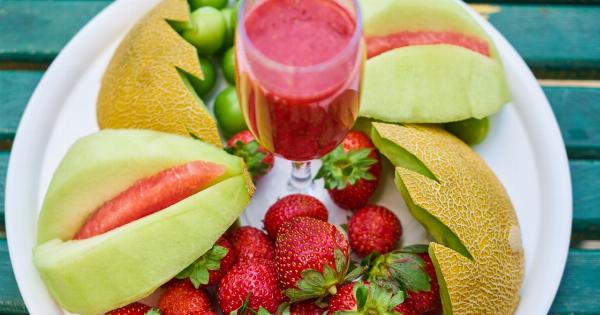We often hear about the importance of maintaining a healthy and balanced diet to achieve long-term weight loss and overall well-being.
While sticking to a specific eating plan can be beneficial, incorporating a free day into your routine can actually enhance the sustainability of your diet. A free day allows you to indulge in your favorite foods guilt-free, which can have numerous psychological and physiological benefits. In this article, we will explore five reasons why a free day is an essential component of any sustainable diet.
1. Mental and Emotional Well-being
Following a strict diet for an extended period can lead to feelings of deprivation and frustration. This restriction can negatively impact your mental and emotional well-being, making it challenging to adhere to your eating plan in the long run.
Incorporating a free day allows you to satisfy your cravings and enjoy foods you love. This freedom from dietary constraints can provide a sense of joy and satisfaction, improving your overall mental and emotional well-being.
2. Enhanced Nutritional Flexibility
A free day can also promote enhanced nutritional flexibility. While following a structured diet, you may find it difficult to consume a wide variety of foods and nutrients due to the limitations and restrictions it imposes.
On your free day, you have the opportunity to explore different food options, try new recipes, and experiment with ingredients that may not typically be included in your regular eating plan. This enhanced nutritional flexibility ensures your body receives a diverse range of essential nutrients, promoting optimal health.
3. Boosted Metabolism
When you consume a restricted diet for an extended period, your metabolism may adapt and slow down in response to the lower caloric intake. This adaptive response is a survival mechanism to conserve energy.
Incorporating a free day into your diet can help prevent this metabolic adaptation from occurring. By having a higher caloric intake on your free day, you signal to your body that it is not in a state of deprivation, encouraging your metabolism to remain active and efficient.
4. Consistency and Long-Term Adherence
Consistency is key to achieving sustainable weight loss and maintaining a healthy lifestyle.
Following a rigid eating plan without any flexibility can lead to feelings of restrictiveness and boredom, often resulting in a higher likelihood of deviating from your diet altogether. By including a free day in your routine, you create a healthy balance between following a structured eating plan and allowing yourself some flexibility.
This balance significantly increases the likelihood of long-term adherence to your diet, promoting lasting results.
5. Improved Relationship with Food
Depriving yourself of certain foods for an extended period can lead to an unhealthy relationship with food, potentially fostering feelings of guilt, shame, or anxiety when indulging in treats or favorite dishes.
Incorporating a free day allows you to enjoy the foods you love without experiencing these negative emotions. As you develop a healthier relationship with food, you can make more informed choices, listen to your body’s cues, and find satisfaction in both nourishing meals and occasional indulgences.
Conclusion
A free day is an important part of any sustainable diet for various reasons.
It promotes mental and emotional well-being, enhances nutritional flexibility, boosts metabolism, improves long-term adherence to your eating plan, and fosters a healthier relationship with food. By incorporating a free day into your routine, you can achieve a sustainable diet that supports your overall health and well-being.






























